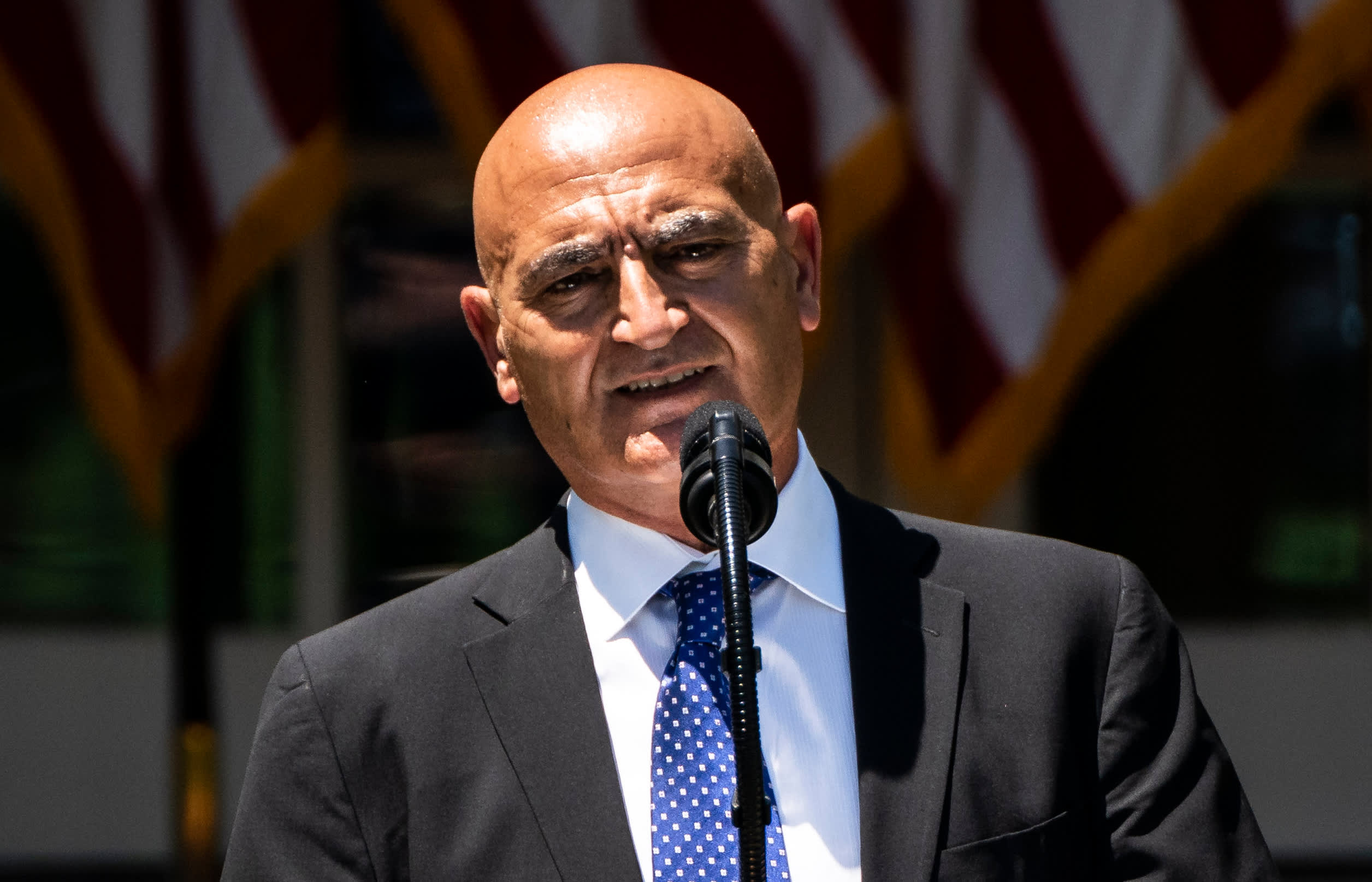Trump’s coronavirus vaccine czar says U.S. could immunize ‘most susceptible’ Americans by December

Moncef Slaoui, a former GlaxoSmithKline executive, speaks with President Donald J. Trump during a vaccine development event in the Rose Garden at the White House on Friday, May 15, 2020 in Washington, DC.
Jabin Botsford | The Washington Post | Getty Images
The United States could immunize Americans “most susceptible” to Covid-19 by December if a vaccine is approved before then, President Donald Trump‘s coronavirus vaccine czar told CNBC on Monday.
The U.S. could also immunize “most of the elderly” and health-care workers in January, Dr. Moncef Slaoui, who is leading the Trump administration’s Covid-19 vaccine program Operation War Speed, said in a “Squawk on the Street” interview. The rest of the public would get a vaccine sometime in January, February, March and April, he added.
Covid-19 vaccine development is progressing “very well,” he said, with the U.S. already investing in 25 different manufacturing facilities to help produce six potential vaccines. The U.S. has spent billions on six vaccine candidates, including ones from Moderna, Pfizer and AstraZeneca, which are currently in late-stage testing.
“We are already stockpiling small amounts of vaccine doses that could become readily available in November or in December,” he said.
Slaoui’s remark came shortly after Trump reiterated on “Fox News” on Monday that the U.S. could have a Covid-19 vaccine by the end of October. On Friday, he said the U.S. will manufacture at least 100 million coronavirus vaccine doses before the end of the year and have enough to inoculate every American by April.
Asked which drugmaker could be the first to be approved, Trump said Monday that Pfizer, Moderna and AstraZeneca are progressing well. He added Johnson & Johnson’s vaccine will “probably be a little later.”
U.S. health officials have repeatedly said they don’t expect to find a safe and effective vaccine until the end of the year or early 2021, though there is never a guarantee. Trump’s vaccine forecast has added to concerns from infectious disease experts and scientists that he is pressuring U.S. regulators to approve a vaccine before it’s been adequately tested.
On Sept. 8, nine drug companies in an unusual move released a letter pledging that they would prioritize safety and uphold “the integrity of the scientific process” in their efforts to develop coronavirus vaccines.
Dr. Stephen Hahn, the commissioner of the Food and Drug Administration, also addressed political concerns, telling the Economic Club on Sept. 10 that he has “no intention” of overuling career scientists at the FDA on a vaccine approval.
Earlier this month, Slaoui told “Science Magazine” that he would “immediately resign” if there were undue interference in this process.
“I’m out,” he said, according to a transcript of the interview. “I have to say there has been absolutely no interference. Despite my past, which is still my present, I am still the same person with the same values. The pandemic is much bigger than that. Before being a political person with convictions, humanity has always been my objective.”
When asked by CNBC on Monday whether he would publicly take a vaccine once it’s been granted emergency use authorization or approval, Slaoui said, “certainly.”
“Would I just as a person, with my values and ethics, ever agree knowingly that something is unsafe and say, ‘no, it’s safe.’ I can guarantee you that would never happen. And, therefore, I’ll take it,” he said.
He added he’ll be looking to see what the recommendation will be from the FDA’s advisory committee of outside experts. He said it’s possible some of the vaccines could be better suited for the elderly, while others may be better for young adults and children.




